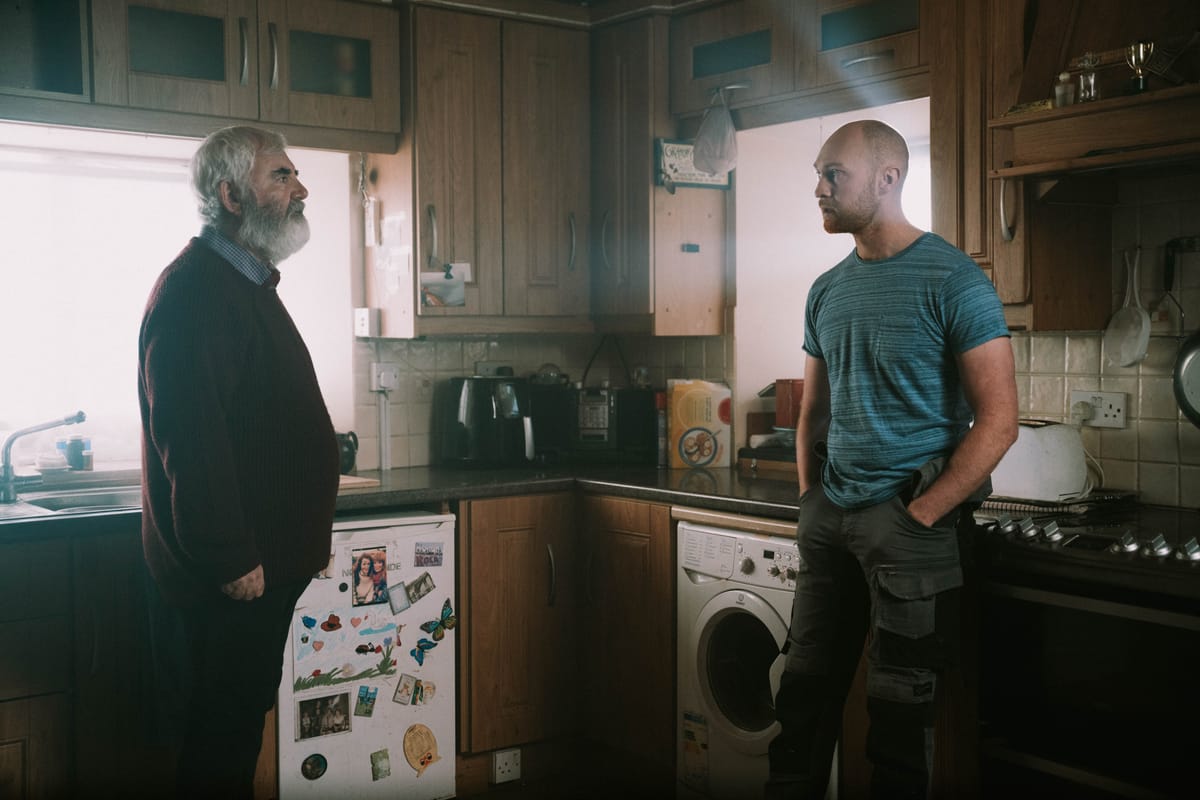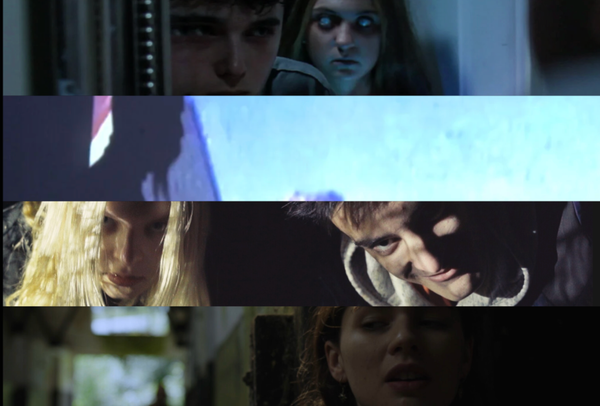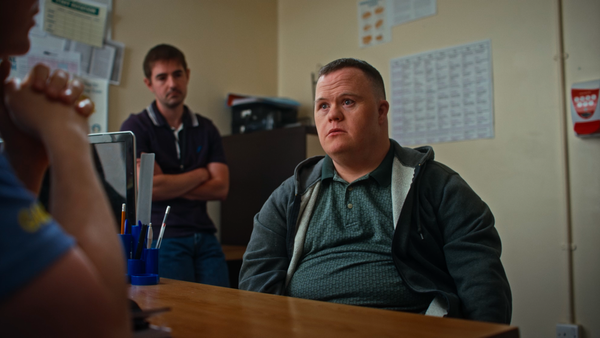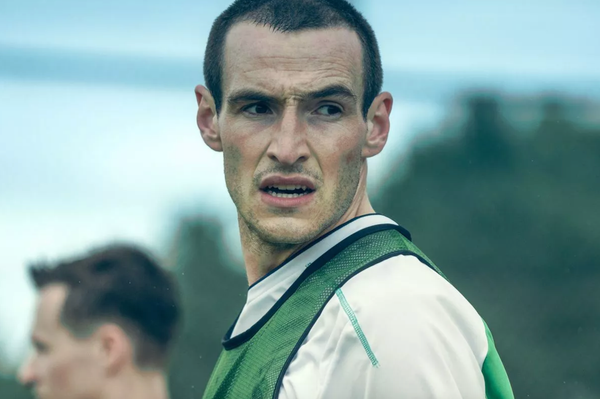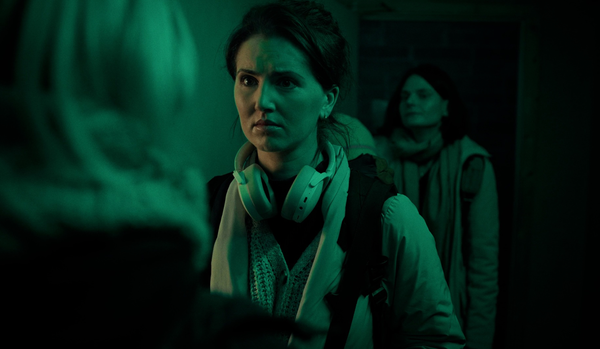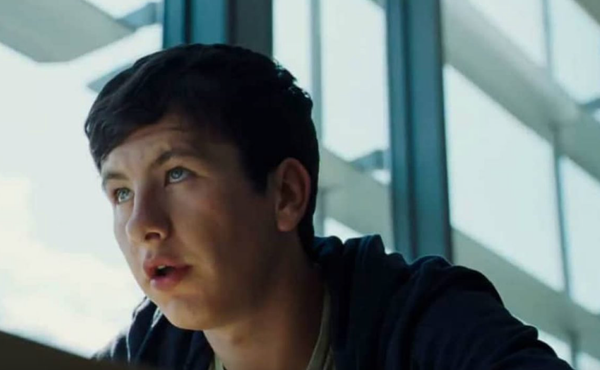After a jam-packed premiere at Galway Film Fleadh, multiple awards and a strong festival run, what's next for the team behind indie feature Solitary? Will Penn chats with director Eamonn Murphy and producer Alan Breslin about their intimate, slow-burning exploration of isolation, community, and the subtle horrors of rural life.
Solitary has a very personal feeling to it, clearly born from either first-hand experience or things you've observed in the community. I'd be interested to know what the initial catalyst was for making this into a film.
Eamonn: I should clarify that I'm from Dublin City, not the countryside. Country people find it funny - at our Q&A last night at the Meath Film Festival, audience members were surprised I was from the city, because they said I captured country life so accurately.
Like many city people, I have family in the country and spent summers in central Ireland with different family members. There's a strange feeling when you're accustomed to traffic noise and city life, then you step outside at night in the countryside with no streetlights, no traffic - just surrounded by black silence. You feel unease in a guttural, instinctual sense. That was the first kernel of the idea: the realisation that if anything happens to you in the countryside, your nearest neighbour is probably a ten-minute drive away.
I first started writing the script around 2012-2013. It was something I could never figure out initially - I was trying to write very Hollywood, very formulaic. It sat on a hard drive for a long time. In 2022, I was in Berlin trying to write a different script, couldn't figure that one out, so I went back to this one. It was only when I figured out who Brendan was as a character that everything came together.
Brendan gives the story so much propulsion - he's the central nucleus. I loved how we have quite a singular perspective, very much from his view of the world. During the day it's expansive and community-focused, then at night it tunnels in. Was that something you envisioned before shooting?
Eamonn: I definitely knew that in pre-production. I see the film as two halves - daytime was drama, nighttime was horror. I wouldn't put it in the horror category entirely, but there are definitely elements and filmmaking techniques from the horror genre there.
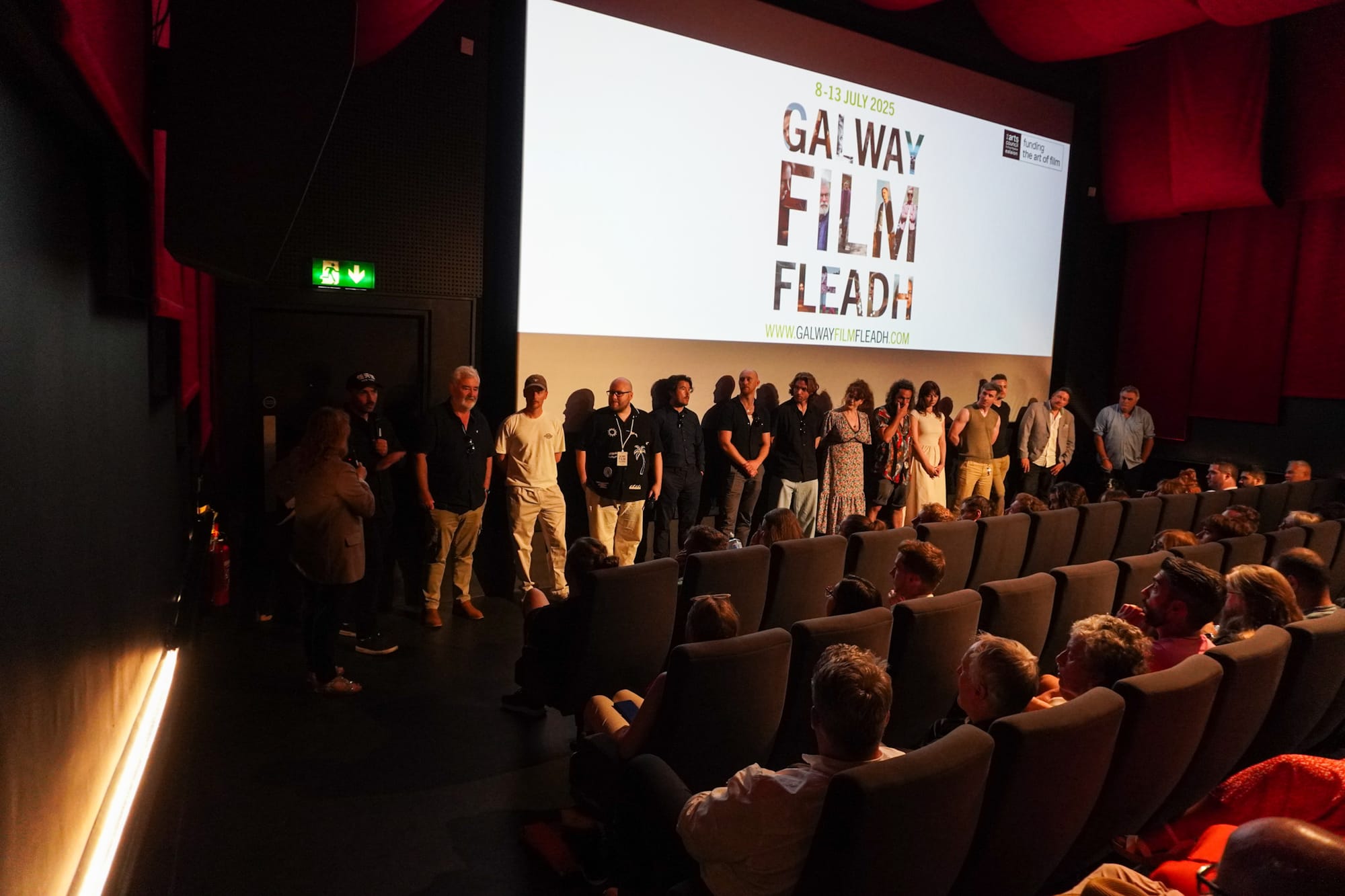
There was one shot where he's lying in bed that reminded me of Hereditary - the way it's framed draws your eyes to the corner of the frame, creating a suspenseful effect. Where did you take those inspirations from?
Eamonn: Honestly, I'm terrified of horror films. I took a lot from Eastern European and Russian cinema - filmmakers like Cristian Mungiu and Andrei Tarkovsky, where you're allowing the drama to unfold in the frame rather than letting the camera or edit drive where the audience looks. Many scenes we shot, we only had time to get one take due to budget constraints.
When I'm figuring out the shot list, I always ask: can I get the audience to understand the film if I remove all dialogue and sound? Can they piece together what's happening based on the frame and lighting alone?
Alan, when did you and Eamonn first get together to discuss this project?
Alan: It's probably unconventional - I came in just two months before shooting. Producers typically come in at the very beginning, but this is huge credit to Eamonn. He's as much a producer as he is a director, writer, and editor. It was quicker to ask what he hadn't done rather than what he had done.
I mainly handled the legal side, contracts, and scheduling. Eamonn had done such a fantastic job setting everything up. The more we're hearing from people who watch the movie, the more fulfilling it becomes. I used to say everyone knows a Brendan [the protagonist played by Gerry Herbert], but now I think there's a little bit of Brendan in all of us. Everyone can relate to aspects of isolation.
When watching this, I was struck by the contrast between daytime community and nighttime isolation. This speaks to a universal story of isolation, especially now. I was reading a report the other day that detailed how respondents identified as some of the loneliest in the world in Ireland according to surveys. How do you channel that loneliness productively while still showing love for community?
Eamonn: Brendan is from a different generation than us. We're probably more emotionally intelligent and open about feelings, whereas Brendan comes from a time when talking about feelings got you laughed at - you just coped with it.
He's a tragic character by design, his own worst enemy, but also like every old man I've met. He won't talk about his problems because he doesn't want to burden his daughter. He's the gentlest character I could think of - the idea of hurting someone is devastating to him. His wife was his connection to the outside world, and now she's gone.
He's in this weird limbo where he hasn't moved on or found a new life for himself. The narrative tension is: will he stay where he feels he belongs, or give that up to move? His refusal to change drives the story.
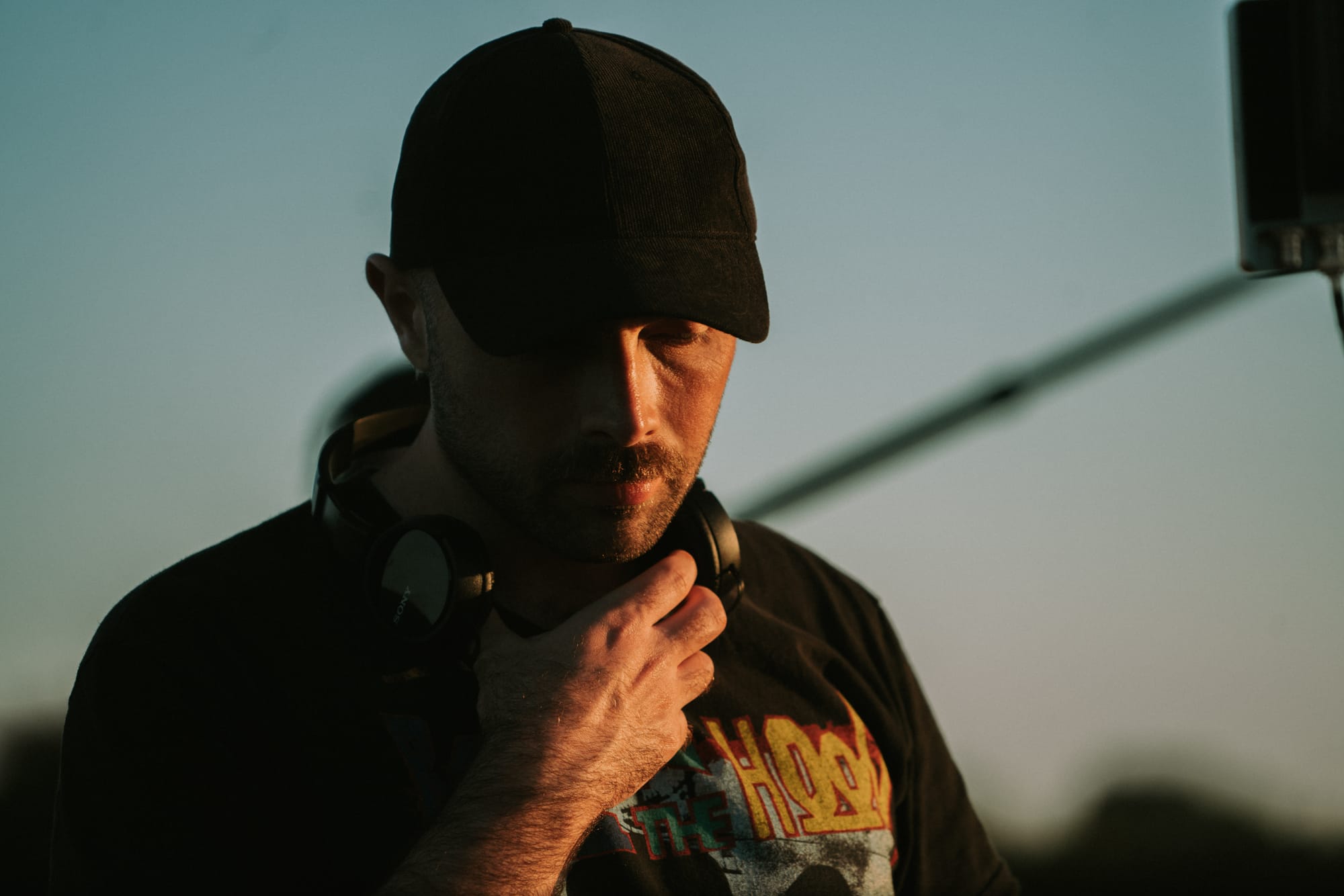
Was it challenging to draw that performance out of the older actor, or did that come naturally to Gerry Herbert?
Eamonn: We did open auditions, and many actors from stage tend to be very big and theatrical. When Gerry sent in his self-tape, he immediately understood what was necessary - a man hiding his emotions, saying he's fine but clearly not fine, with a wall in front of him. It's like shaking up a bottle of Coke and opening it slightly - emotions trying to get out but can't.
This is Gerry's first feature film, so it was a learning curve for both of us. In rehearsals, we agreed to be completely honest with each other - if we weren't happy or confused, we'd say it, all for the good of the film.
Alan, were there specific challenges filming in County Laois?
Alan Breslin: Much of that leans toward Eamonn - he had so much planned. It was collaborative with the local community. We filmed a lot at Michael Creagh's place in Rathdowney, and he was incredibly supportive, helping with other locations and giving us an understanding of what the place is really like.
It's important to know where you're filming - it's not just "a rural town," it has its own character. Michael was incredibly helpful, and we filmed on his family lands. A lot of that comes down to relationships Eamonn built over the years and an element of trust that wherever it's shown, it'll be shown with respect and in a positive light.
How do you balance exploring difficult subjects like isolation and masculinity while respecting how a community wants to portray itself?
Eamonn: A lot of it comes from the script. I don't consider myself a good writer - I consider myself just clever enough to recognise bad writing. My scripts aren't big, wordy things with monologues. They're very simple, and I'd change lines on the day of shooting if they didn't sound right.
I'm always stripping everything back. Do I need dialogue to explain this, or can the audience pick up on what's happening without it? I went down to the community five or six times before shooting, spent time with the homeowner, met neighbours. Two people offered spare bedrooms for crew at huge discounts just to support the film.
It's those little connections that help get a film like this over the line when you're dealing with such a small budget. Once you get someone really invested in the film, and the community invested, it shows the power of community.
Alan Breslin: The local support was incredible. Kevin Behan, who owned the farm we filmed on, was so supportive. Their uplifting energy had a knock-on effect during gruelling days. We had a crew of nine people for the whole feature film, which is crazy.
One example was using the community centre in Rathdowney to film the hospital scene and Peg's nighttime scene. That was very last-second, and we all came together as a team effort. We had an empty community centre and somehow made it work. There was a real sense of community within our production group as well.
After such a solitary writing process, how does it feel sharing it with crowds, winning awards, and hearing people talk about it?
Eamonn: It's very surreal. This nearly killed me, honestly. I shoot regularly - comedy skits and things - but making a feature presents its own challenges. Once the train started moving, it wasn't stopping. You have to roll with the punches, make sacrifices, choose what's essential.
Then there's the edit, which was its own form of torture. You look at all the money spent, look at the edit, and think, "Why have I done this to myself?" You put the assembly together, take three months away, come back with an objective view, and start cutting everything down.
We sent Galway an unfinished film for judging. The night before they called, I told my girlfriend I didn't know if I wanted to finish it. You go through so much struggle that it's hard to maintain enthusiasm. But when Galway called saying they wanted to screen the film - the best outcome for an independent Irish film - I had to pull over on the roadside. It didn't feel real, but it was also terrifying because I realised I had to finish it.
What's next? Are you readily running back to the fray after this nearly killed you?
Eamonn: I'm writing a new film - can't say much because it's early days. I want to make something bigger, more fast-paced. Solitary is slow by design, and I like challenging myself. The new one is about a missing person's case - a straight-up thriller.
I'm enjoying the writing process because it's not chaotic and I don't have people asking when they'll see the script. I'm about 50-60 pages through and very happy with it, but you never know - could be finished in a month or take two years until I'm satisfied with it.
Thank you so much for chatting with us!
And well done to Alan and Eamonn who have just signed a deal with sales agent Screenbound Entertainment in the UK. Watch this space as Solitary will be coming to a screen near you shortly.

